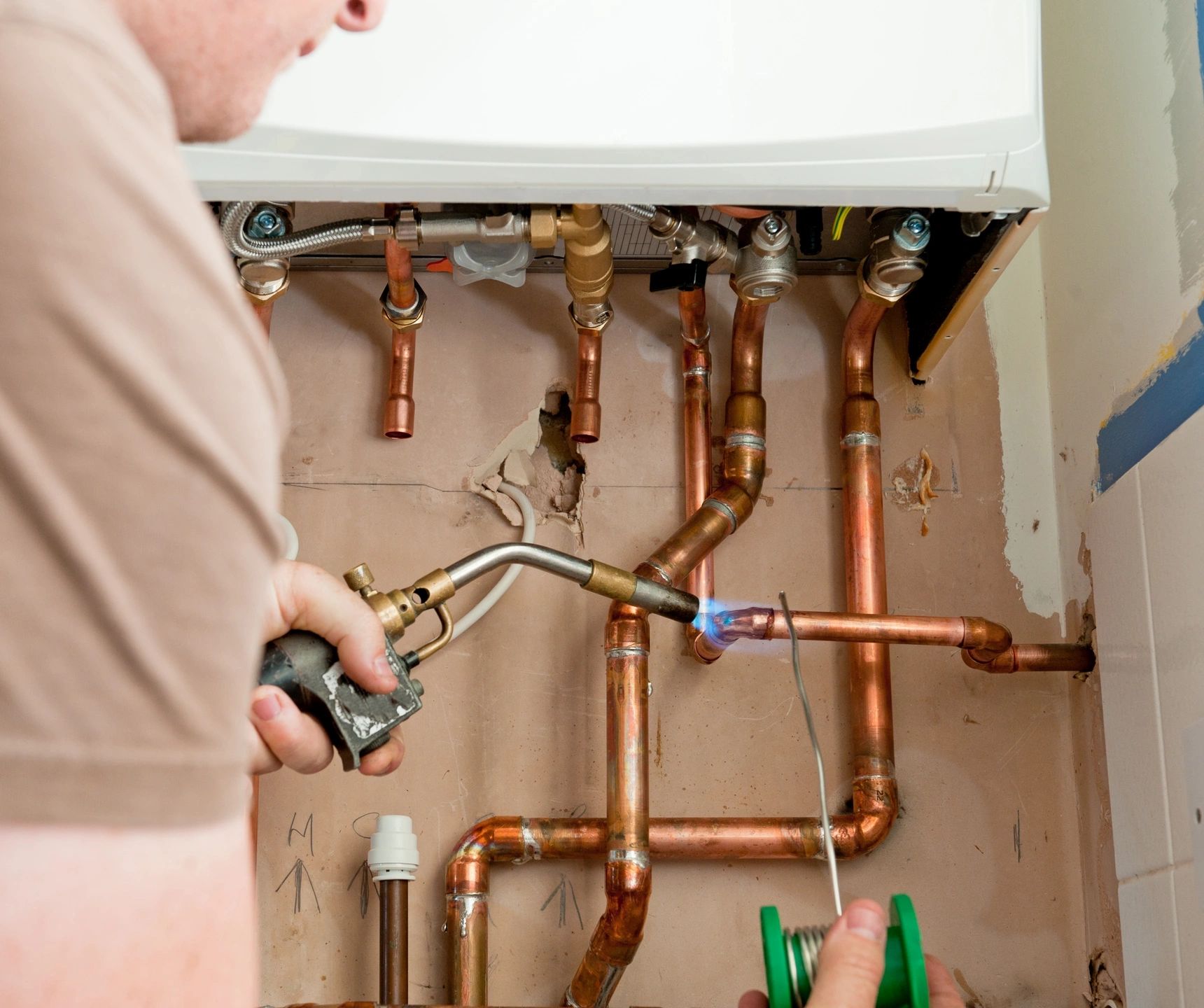Tankless water heaters are the hottest trend on the market! They are more expensive up front but will provide you with hot water continuously. Not only are tankless water heaters great for saving money, but they also save a considerable amount of space. These modern heaters are less than half the height and size of traditional water heaters and are usually mounted to the wall.
Depending on the climate you may be able to choose between an indoor or outdoor model which will save you precious indoor real estate. These energy-efficient tankless water heaters use a built-in coil mechanism that heats water when you need it. This allows you to always have hot water. This efficient method ends up saving homeowners thousands of dollars over the lifespan of the product.
Tankless heaters operate at greater than 80% efficiency while the most efficient traditional gas water heaters operate at 67% efficiency. They also save additional energy because water is not constantly heated, cooled, and reheated within a storage tank. Tankless heaters maintain efficiency over time as they are not at risk of sediment build-up and efficiency decline like traditional water heaters.
Additionally, consider that a standard water heater will usually last 8-12 years. Tankless heaters can perform well for 20-30 years. Built with top-of-the-line materials and components these modern water heaters are much less susceptible to leaks, rust, and breakdown. With longevity in their lifespan, homeowners will find that having a tankless water heater will increase the resale value of their home.
There is a drawback to tankless water heaters. Tankless water heaters provide a limited quantity of hot water per minute. Typically flow rates for tankless heaters are between 4-8 gallons/minute which means that tankless water heaters may not be ideal for families running multiple hot water sources at one time. Whether your goal is to save money, space, or Mother Earth, consider an indoor or outdoor tankless water heater. You won’t miss having to wait for hot water ever again.
Pros:
- More energy efficient
- Hot water on demand
- Long-term financial savings
- Smaller footprint/Space-saving
- Indoor or outdoor options (climate dependent)
- Longer lasting produce
- The increased resale value of the home
Cons:
- Offer a limited amount of hot water per minute
- Not ideal for large families
- High upfront cost

